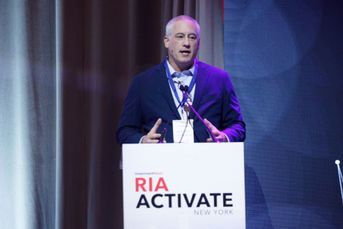Not enough rookie advisors to go around, Cerulli says
 Ezra Bailey
Ezra Bailey
Financial advisor head count grew by just 2,579 advisors in 2022, while the failure rate among rookie advisors was more than 72%, according to a Cerulli study.
The wealth management industry could use an infusion of new blood — and fast.
According to Cerulli Edge’s latest U.S. Asset and Wealth Management report, the number of new advisors entering the business is hardly offsetting retirements and trainee failures as firms struggle with traditionally high wash-out rates.
The study shows financial advisor head count grew by just 2,579 advisors in 2022, while the failure rate among rookie advisors was more than 72%.
To turn the tide, Cerulli recommends that advisory firms expand their talent pipelines and enhance rookie development programs. New advisor recruiting is currently driven by word-of-mouth referrals, with nearly two-thirds (64%) of rookies being recruited this way.
“Just 15% of rookies report financial advisor as their first career and only 43% of rookie advisors have previously worked in financial services. Broker/dealers and registered investment advisors must find new avenues for connecting with potential candidates and spreading awareness about the profession,” Stephen Caruso, Cerulli research analyst, said in a statement.
The report showed the importance of structured training programs when it comes to future success. Nearly half (45%) of rookie advisors said their responsibilities include managing small-balance accounts for a senior advisor to gain client experience. That said, keeping rookies in a support role for too long can limit their production potential, given that 69% are responsible for building their own client base from scratch, the study says.
Caruso said a well-structured training program should gradually shift rookie advisors into production and provide a natural progression of their roles, so that practices can “capitalize on a new resource without boxing a rookie into an operational or support role.”
“RIA custodians and B/D home offices should actively support this transition process by providing best practices and a framework advisors can use to train future successors,” Caruso added.
Nina Lloyd, president and CEO of Opus Financial Advisors, part of Osaic, laments the size of the barrier to entry in the wealth advisory industry. She points out that the industry practice of tying compensation to revenue production means advisors’ early years are lean ones.
“Talented individuals can pursue work in other fields and have access to traditional salaries and benefits which go a long way when supporting a young family. That said, our profession can be noble, rewarding, and fulfilling for advisors and their families,” Lloyd said. “I’m grateful each day I come to work for the role I get to play in the lives of my clients.”
Learn more about reprints and licensing for this article.








